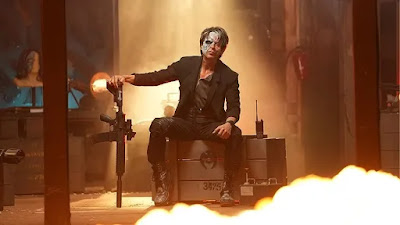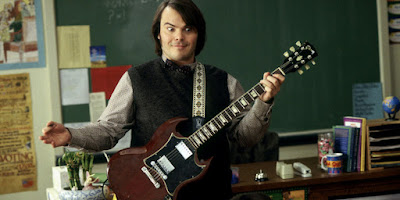Creeping back into cinemas to mark its 50th anniversary, not long after the passing of its director William Friedkin and just ahead of the possible atrocity of next week's The Exorcist: Believer, 1973's The Exorcist remains one of the more divisive New Hollywood texts. I know of at least one esteemed colleague (you can guess) who considers it the greatest film of all time, and at least half a dozen more who've raised objections, over the years, to the hammering quality Friedkin's film keeps up even before the arrival of Satan himself. (Don't get any of them started on the sequels.) All parties agree on the movie's extraordinary, thumping force; the argument, which in the largely secular world of film criticism practically passes for a theological debate, concerns how that force was applied in this particular case. Did Friedkin use his unquestionable filmmaking powers for good or evil, or something in between?
Revisiting the film for the first time in twenty years this week, I was chiefly struck by the extent to which The Exorcist has endured as a template: you can see its influence on even the recent Talk to Me, made by kids whose parents might not have been old enough to see Friedkin's film on first release. Friedkin and writer William Peter Blatty saw the value in defining their characters before they begin to toss them around like ragdolls; it ensures we feel the trauma all the more when it starts, but it also allows for odd little shivers of predestination, like the way Ellen Burstyn's Chris crosses paths with Jason Miller's Father Karras twice before the main possession plot binds their fates forever. It could just be Friedkin's famously robust directing style, but all these characters appear suggestible and on the edge from an early stage. Chris dresses like Shirley MacLaine but seems only a few pills away from going full Cassavetes on us; Karras, who seems far older and wearier than Miller's 34 years, crumbles when confronted with his ageing mother's frailty. Gradually, it dawned on me: this may be one of those once-in-a-generation films where, by accident or design, a brattish creative (Friedkin was only in his late thirties) embraces the entire range of human experience, and in so doing makes a film that hits differently each time you see it.
Newcomers drawn here in search of sleepover thrills and spills will continue to be thrown by the fact we get forty minutes of dinner parties and MRI scans before the truly weird shit goes down, and that it's ninety minutes before we arrive at the image on the poster. (At the turn of the millennium, there emerged an alternate cut subtitled The Version You've Never Seen; there should probably also be The Exorcist - The Version You *Think* You're Going To See.) New parents will doubtless share Chris's fears for her daughter Regan (Linda Blair), though they may also be getting early inklings of what Karras is going through in his domestic life, and may wish their parents were still as upright as Max von Sydow's Father Merrin. Amid all the decay and despoilment the film describes, you spy a crisis that is arguably more existential than spiritual: how hard it is to retain one's faith in the world, let alone gods of any kind. Subsequent shockers would take sharp knives to this philosophical framework, the better to get to the blood and thunder, but its presence here gives the lie to the notion this director was solely concerned with bashing his audience around the head. As late as eighty minutes into a two-hour film, Friedkin gives us a scene that shows us no more - and yet no less - than Chris quietly ironing a sweater for her stricken child.
Occasionally The Exorcist sounds a hokier, more generic note, like the passing suggestion the portal to hell may have been opened by a Ouija board, and some of its effects now look a touch quaint. (The rattly bed is right out of Chitty Chitty Bang Bang: it'd be a fun ride in different circumstances.) But there's tremendous narrative skill evident in the way this wide-ranging plot gradually contracts, as the characters' worlds collapse in on themselves and each other, to show us the cosmos in a child's bedroom; we surely feel that contentious force all the more for being in a confined space and obliged to look all these demons squarely in the eye. (Friedkin and Blatty have to crack a window in a bid to banish despair and let in some air and hope.)
Little monsters that they were, the New Hollywood directors, certainly, were keeping a beady eye on one another, to see what they could get away with. The Exorcist may be the first blockbuster-as-compendium, a film that would subsequently be spoofed and strip-mined for its constituent parts. It's just possible the emergent Steven Spielberg saw the archaeology prologue (and the sensation the rest of the movie became) and thought: yup, I'll have some of that. It's possible Martin Scorsese and Paul Schrader watched the intense discussions of faith and took up their own pens with renewed purpose. And I suspect more than a handful of tyros had their interest piqued by the element of self-referentiality - the fact Chris is not just Generic Horror Mom, but a Fonda-like working actress introduced filming a drama (the resonantly titled "Crash Course") on the turbulence of America at the turn of the 1970s.
If there's anything about The Exorcist: Believer that intrigues, it's how it handles Burstyn's return and answers the question of where Chris went from here. Did she keep acting upon leaving Georgetown? Was "Crash Course" even completed, given its director's sorry fate? What the new film probably won't do is allow itself time to mull the mysteries of the universe as Friedkin's does, be they general (how life goes on even as lives hang in the balance) or more specific (what the vile-seeming Burke Dennings was doing in Regan's bedroom, where the girl gets her riper language from, whether the two are in any dreadful way linked). Long before the bit with the crucifix and the help me lesions, these characters are buffeted by fate, which is why The Exorcist exists as both horror movie and something more besides. All human life is here, however disconcerting, sickening or (yes) hammering some of that might be - and only a filmmaker who really badly wanted it all could have caught so much of it on camera.
The Exorcist returns to cinemas nationwide from Friday; The Exorcist: Believer opens in cinemas nationwide on October 6.












